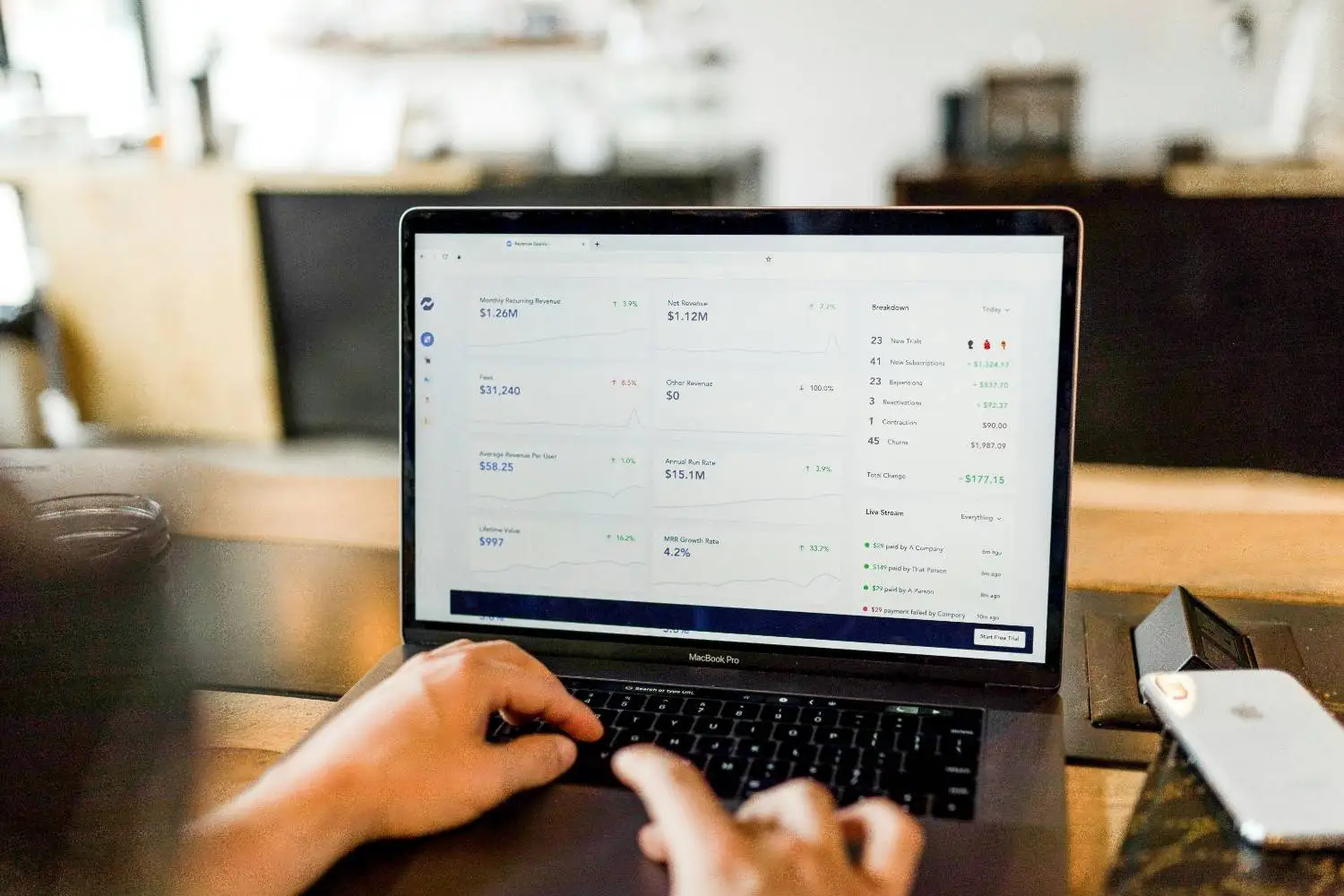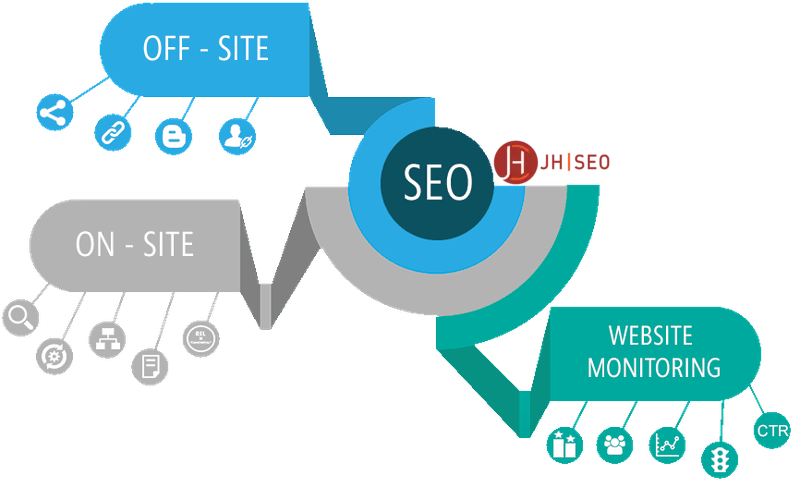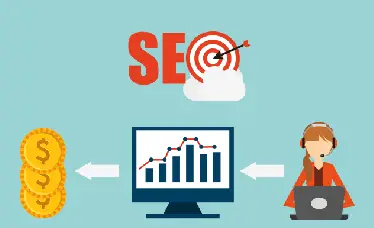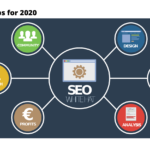Link building is crucial for SEO, especially for e-commerce sites. In a crowded digital marketplace, building links helps improve visibility and drive organic traffic. Search engines assess a website’s authority by the number and quality of backlinks. For e-commerce sites, domain authority is key to ranking higher on search engine results and gaining trust from both search engines and users.
A strong domain authority can determine whether your site ranks on the first page or gets lost further down. Link building boosts this authority by showing search engines that other websites value your content. A smart ecommerce link-building strategy increases traffic and conversions by acquiring quality backlinks, which signal trust and relevance to search engines, essential for success in the competitive digital space.
What is Link Building?
Link building is the process of acquiring backlinks from other websites. These backlinks act as signals for search engines to assess the credibility, relevance, and authority of your site. When other sites link to your e-commerce site, it’s seen as a vote of confidence, indicating that your content is valuable and trustworthy.
For e-commerce sites, link building is crucial to improve domain authority, boost rankings, and drive more traffic. A well-executed ecommerce link-building strategy helps attract more customers, increasing sales and business growth.
Not all links are equal. Search engines prioritize quality over quantity, valuing links from trusted, relevant, and authoritative sources. A quality link has strong anchor text and fits contextually with your content, carrying more weight in SEO efforts.
Conversely, bad links—such as those from spammy or broken websites—can harm your SEO and result in penalties from search engines. E-commerce sites should focus on acquiring high-quality, relevant links to maintain a strong backlink profile.
Key Types of Links:
- Good Links: High-quality backlinks from trusted websites with relevant content, often achieved through methods like guest posting or partnering with industry influencers.
- Bad Links: Links from spammy sites, link farms, or low-quality sources that can negatively impact SEO and lead to penalties.
- Broken Links: Links that lead to non-existent pages, can hurt both user experience and SEO performance if left unchecked.
Why Link Building is Crucial for E-commerce Sites
Link building is a cornerstone of any effective SEO strategy, particularly for e-commerce sites looking to stand out in the crowded online marketplace. For an online store to succeed, it needs more than just quality products and a user-friendly website. It must also gain visibility and credibility in the eyes of both potential customers and search engines. A strategic approach to building links can help achieve both, making it a vital aspect of any ecommerce link-building strategy.
Boosting Visibility and Credibility
In e-commerce, link building boosts visibility by improving search engine rankings. Search engines use the number and quality of backlinks to assess a site’s value. Quality backlinks from trusted websites signal that your ecommerce site is reliable, improving domain authority and increasing the chances of ranking higher in search engine results pages (SERPs), driving more traffic to your online store.
Link building also helps establish credibility in your niche. When reputable websites or influencers link to your content, it acts as an endorsement, building trust with both search engines and your audience.
Improving Trust with Search Engines
Search engines use links to assess content quality and relevance. Quality backlinks from authoritative sites signal trustworthiness, helping improve rankings. It’s not just the number of links, but the credibility of the sources, such as established industry sites or guest posting, that enhances your backlink profile.
The anchor text of backlinks is also important. It should be relevant to your content and include keywords related to your products or services, helping both search engines and users understand your page and boosting your chances of ranking for those keywords.
Gaining a Competitive Advantage in the Crowded E-commerce Space
The e-commerce space is highly competitive, and a strong SEO strategy with link-building is key to standing out. Tactics like guest posting, influencer relationships, and leveraging social media can help improve visibility and give an edge over competitors.
Ecommerce link building is a long-term strategy that boosts authority and allows you to rank higher for competitive keywords. As your backlink profile strengthens, your online store becomes a trusted source, improving rankings and industry positioning.
How to Build High-Quality Links for E-commerce Websites
Building high-quality links for an e-commerce site requires a strategic approach. Success lies in acquiring backlinks from reputable, relevant sources to boost SEO. A strong link-building strategy ensures sustainable growth in domain authority and search engine rankings.
Tips for Identifying Reputable Sources for Link Placement
To begin building links, it’s crucial to target reputable sources that are relevant to your industry and audience. Here are some tips to identify high-quality sites for link placement:
- Industry-Relevant Websites: Look for websites within your niche or related industries that attract a similar audience. These sites are more likely to offer valuable quality backlinks.
- Domain Authority: Use tools like Moz or Ahrefs to evaluate the domain authority of potential linking sites. Higher domain authority generally indicates a more reputable website.
- Content Relevance: Ensure that the content of the linking website aligns with your e-commerce site’s products or services. Links should come from pages that discuss related topics to maintain relevance.
- Avoid Spammy Websites: Stay away from sites with a reputation for low-quality content or those that engage in unethical practices like link farming. These can harm your backlink profile.
Outreach Strategies to Acquire Backlinks
Once you’ve identified potential sources for link placement, the next step is to execute an effective outreach strategy. Here’s how to go about it:
- Personalized Email Campaigns: Craft personalized, value-driven emails to webmasters or content managers, highlighting why linking to your e-commerce site will be beneficial for their audience. Mention how your content adds value to their existing content.
- Guest Posting: One of the most effective strategies for acquiring high-quality backlinks is guest posting. By writing valuable content for other websites in your industry, you can earn backlinks while building relationships with influential bloggers and industry leaders.
- Broken Link Building: Identify broken links on authoritative websites and offer your content as a replacement. This is a mutually beneficial strategy, where you help the website fix broken links while gaining a quality link in return.
Creating Link-Worthy Content (e.g., Blog Posts, Infographics, Videos)
Creating compelling, shareable content is a cornerstone of any effective ecommerce link-building strategy. High-quality, link-worthy content attracts natural backlinks from authoritative sources. Consider creating the following types of content:
- Blog Posts: Write in-depth, informative blog posts that address common pain points within your industry. Content that answers specific questions is more likely to be linked to other websites and can help you rank for long-tail keywords.
- Infographics: Visual content like infographics is highly shareable and can generate links from websites that use your graphics in their articles or content. Infographics are particularly effective at simplifying complex topics.
- Videos: Videos are incredibly popular on social media and other websites. Creating informative, entertaining videos can attract backlinks from bloggers, industry sites, and even social media platforms.
By consistently producing high-quality content, your e-commerce site will naturally attract more links over time, especially if the content is relevant and useful to your audience.
Leveraging Partnerships, Influencers, and Industry Affiliations for Backlinks
Partnerships with influencers, affiliates, and industry organizations are powerful strategies for acquiring quality backlinks. Here’s how to leverage these relationships:
- Influencer Collaborations: Reach out to influencers in your industry who can share your content or products with their followers. Influencers often link to the brands they promote, which can result in high-quality backlinks and increased traffic.
- Industry Partnerships: Establish relationships with other e-commerce businesses, suppliers, or industry associations to collaborate on content, events, or joint ventures. These collaborations often lead to backlinks on reputable websites.
- Social Media Sharing: While social media links are typically nofollow, they can still drive traffic to your site and encourage other sites to link to your content. Share your best content on platforms like Facebook, Instagram, and LinkedIn to increase visibility.
Incorporating these strategies into your ecommerce link-building strategy can not only help you acquire valuable backlinks but also establish your online store as an authoritative source in your industry.
Link Building Efforts for E-commerce: Key Strategies
Effective e-commerce link-building requires a mix of strategies to secure quality backlinks, boost authority, improve rankings, and drive organic traffic. Here are key tactics for success:
Guest Posting and Content Marketing
Guest posting is one of the most effective ways to build authoritative backlinks and establish your e-commerce site as a credible resource in your industry. By contributing content to other websites, you can earn high-quality backlinks while reaching a wider audience.
- How Guest Posts Can Help Build Authoritative Backlinks: Guest Posts build authoritative backlinks by allowing you to include links to your e-commerce site on reputable websites. These quality links signal trust and relevance to search engines, strengthening your backlink profile and improving search rankings.
- Crafting Content That Attracts Organic Links: To attract organic links, create valuable, informative content that addresses key industry topics. Content that solves problems or provides insights is more likely to earn links from other sites. Ensure your anchor text is relevant to your products, boosting SEO and keyword relevance.
Building Relationships with Industry Influencers
Building relationships with industry influencers and bloggers can significantly boost your ecommerce link-building efforts. Influencers already have established audiences, and their endorsement or links can drive substantial traffic to your site.
- How to Network with Influencers and Bloggers to Secure Backlinks: Networking with influencers and bloggers can help secure backlinks. Reach out to those in your niche, offering collaborations or free products in exchange for reviews or mentions. This fosters relationships and increases the likelihood they’ll link to your site, benefiting both backlinks and future collaborations.
- Why Influencer Partnerships Can Drive Both Traffic and Links: Influencer partnerships drive both traffic and links. When influencers share your content, it generates buzz across their social media and blogs, leading to traffic and more backlinks from other creators. These backlinks carry strong SEO value, improving your backlink profile.
Participating in Online Communities and Forums
Participating in online communities and forums can be an effective way to build quality backlinks while also positioning yourself as a thought leader in your niche. Many niche communities provide valuable opportunities to engage with potential customers, bloggers, and influencers.
- Leveraging Niche Communities to Get Quality Links: Engage with communities on platforms like Reddit, Quora, or forums by answering questions and sharing insights. This can lead to opportunities for building links as others link back to your ecommerce site for reference.
- How Answering Questions on Platforms Like Quora and Reddit Can Help: Answering questions on platforms like Quora and Reddit helps build authority and secure backlinks. Providing helpful answers with relevant links can drive traffic, improve rankings, and attract more links as content gets shared.
Using Product Reviews and Testimonials
Incorporating product reviews and testimonials into your ecommerce link-building strategy helps acquire quality backlinks and boosts your backlink profile. Reviews build trust with customers and generate valuable links from sources like customer blogs, review sites, and influencers, boosting SEO.
Encouraging Customers and Partners to Link to Your Site via Reviews
One of the most natural ways to earn backlinks is by encouraging customers and business partners to leave reviews about your products or services. Reviews not only provide social proof but can also be a source of quality backlinks when customers link back to your ecommerce site within their testimonials.
- How to Encourage Reviews: Make it easy for customers to leave reviews by offering simple options on your site or through follow-up emails. Incentivize reviews with discounts and ensure they’re posted on high-authority sites like Google Reviews, Trustpilot, or industry platforms trusted by customers and search engines.
- Getting Backlinks from Reviews: Reviews that link to your online store improve search engine visibility and grow your backlink profile. Encourage customers to share reviews on review sites, personal blogs, or social media, where they can include links to your ecommerce site, boosting SEO.
How Positive Testimonials Can Lead to Backlink Opportunities
Positive testimonials not only build credibility but can also lead to valuable backlinks when shared on other websites or used in marketing materials.
- How to Turn Testimonials into Backlink Opportunities: Ask customers or influencers with positive testimonials to feature them on their websites or blogs. These endorsements often include backlinks to your ecommerce site, improving your backlink profile, and boosting search engine rankings.
- Leveraging Social Media for Backlinks: Encourage customers and partners to share testimonials on social media, where they may include links to your online store. These social signals can boost traffic and help acquire additional backlinks, indirectly improving your SEO.
How Link Building Affects Search Engine Rankings
Link building is crucial for improving search rankings, particularly for ecommerce sites. Quality backlinks signal authority and relevance to search engines, boosting rankings and making your store more visible to potential customers.
The Direct Impact of Backlinks on Rankings and Visibility
Backlinks from other sites are crucial for improving search engine rankings. They signal trust and authority, making your ecommerce site more likely to rank higher for relevant keywords, increasing visibility, and driving more traffic.
- Improved Search Engine Rankings: Acquiring high-quality links from relevant, authoritative websites helps improve your website’s ranking for specific keywords and phrases. For example, if your anchor text includes keywords related to your products or services, search engines will associate those keywords with your site, improving your chances of ranking for them.
- Increased Organic Traffic: As your site ranks higher in search results, more users will click on your site, resulting in increased organic traffic. This can lead to higher conversion rates and, ultimately, more sales for your online store.
Why Search Engines Like Google Value High-Quality Backlinks
Not all backlinks are equal. Search engines prioritize quality over quantity, as high-quality links from reputable sources enhance your ecommerce site’s credibility. Google evaluates backlink quality based on several factors.
- Reputation of the Linking Site: Links from authoritative and well-established websites carry more weight than those from low-quality or irrelevant sites. A link from a popular blog or industry leader, for instance, is much more valuable than a link from a random, low-traffic website.
- Relevance: Backlinks from sites that are relevant to your niche or industry are more beneficial for SEO. For instance, if your ecommerce site sells home goods, a backlink from a home improvement blog will carry more weight than a link from a completely unrelated website.
- Anchor Text: The anchor text used in the backlink plays a significant role in SEO. Search engines consider the keywords in the anchor text to understand the context of the link and what your page is about. For optimal SEO, anchor text should be relevant, descriptive, and incorporate targeted keywords.
The Role of Link Building in Improving Organic Search Results
Link building is key to improving organic search results. Backlinks act as votes of confidence, signaling to search engines that your content is valuable, helping your ecommerce site rank higher for relevant keywords.
- Boosting Domain Authority: As you acquire high-quality backlinks, you improve your site’s domain authority. This is a metric used by search engines to measure the overall credibility of your website. The higher your domain authority, the more likely your site is to rank well in search results, even for competitive keywords.
- Improving Organic Visibility: As your site’s rankings improve, it gains more visibility in organic search results. With an effective ecommerce link-building strategy, you can outrank competitors and ensure that your online store appears at the top of the search results when potential customers search for related products or services.
How Search Engines Evaluate Links
Search engines use links to assess a website’s authority and relevance. Link building signals trust, helping an e-commerce site improve its backlink profile and rankings. Key factors include link quality, the difference between dofollow and nofollow links, and the importance of link diversity and relevance.
Overview of How Search Engines Assess Link Quality
Search engines evaluate links based on several key factors to determine their quality and influence on rankings. The quality of a backlink is crucial because search engines like Google use it to assess the trustworthiness and relevance of a page. Here’s how search engines typically assess link quality:
- Link Source: The authority of the website linking to your site plays a significant role in the quality of the link. A backlink from a well-established, high-authority site (such as a well-known industry blog or a leading news outlet) will hold more value than one from a lesser-known, low-traffic site.
- Content Relevance: Links are more valuable when they come from websites that are topically relevant to your ecommerce site. For example, a backlink from a fashion blog is more beneficial for a clothing store than a link from a tech website.
- Link Placement: The placement of the link on the page also matters. Links embedded within content (especially editorial content) are typically more valuable than those placed in footers or sidebars, as they are considered more natural and relevant.
- Anchor Text: The anchor text used in the backlink is another important factor. Using relevant keywords in the anchor text can help search engines understand the context of the link, which can positively impact your ecommerce site’s rankings for those specific keywords.
The Difference Between Dofollow and Nofollow Links
Understanding the difference between dofollow and nofollow links is critical in any ecommerce link-building strategy. Both types of links have an impact on your backlink profile, but they influence search engine rankings differently.
- Dofollow Links: Dofollow links are valuable because they pass SEO value from the linking site to yours, boosting authority and rankings. These links signal search engines that your content is endorsed, making them the primary focus in link-building strategies.
- Nofollow Links: Nofollow links don’t pass SEO value but can still drive traffic, boost brand exposure, and diversify your link profile. While they don’t impact rankings directly, they can increase engagement, such as links from social media or blog comments.
The Importance of Link Diversity and Relevance
A balanced and varied backlink profile is essential for achieving sustainable SEO growth. Search engines prioritize sites with a natural mix of backlinks from different sources, as this reflects a genuine, well-established web presence. Two key aspects of link diversity are the sources and the relevance of the links:
Link Diversity: It’s crucial to build links from a variety of sources, such as blogs, forums, industry websites, news outlets, and social media platforms. This helps create a natural backlink profile and reduces the risk of being penalized by search engines for having an unnatural link profile, which may happen if all your links come from a single source.
- Building links from different domains and websites ensures that your backlink profile is well-rounded and looks natural to search engines.
Link Relevance: While diversity is important, relevant links are paramount. Backlinks from other websites within your industry or niche carry more SEO weight. For example, if you’re running an ecommerce site selling outdoor gear, backlinks from camping blogs, outdoor equipment retailers, and environmental organizations will help improve your relevance and authority in the eyes of search engines.
- Relevant links that use appropriate anchor text can also help search engines understand the context of your pages and improve your rankings for specific keywords.
Best Practices for Link Building in E-commerce
Effective link-building is vital for e-commerce SEO, but ethical practices are key to avoid penalties. Focusing on quality over quantity and maintaining a natural backlink profile will help avoid negative consequences, such as ranking drops or removal from search results.
Ethical Link-Building Tactics to Avoid Penalties
When building links for your ecommerce site, it’s crucial to follow ethical practices to avoid penalties. Black-hat tactics, like buying backlinks or using link farms, can harm your site. Here are some ethical tactics to include in your link-building strategy:
- Avoid Buying Links: While paid links might seem like an easy shortcut to improving rankings, search engines penalize sites that purchase links, especially when the links appear unnatural or are not relevant to the content.
- Steer Clear of Link Farms: Link farms are networks of websites created solely to generate backlinks. These links often come from low-quality sites with little relevance, and using them can severely damage your backlink profile.
- Disavow Spammy or Low-Quality Links: Sometimes, broken links or low-quality backlinks can appear on your website without your knowledge. Regularly audit your backlink profile and disavow any spammy or irrelevant links to protect your site from penalties.
Maintaining a Natural Link Profile
A natural link profile boosts SEO by showing a variety of trusted, relevant links. This enhances your e-commerce site’s credibility and authority. Here’s how to keep your backlink profile natural:
- Diversify Your Link Sources: Acquire quality links from a variety of sources, including blogs, industry forums, and high-authority websites. Relying on only one type of link source (e.g., only guest posting or only social media) can raise red flags to search engines.
- Use a Mix of Anchor Text: Avoid over-optimizing your anchor text with too many exact-match keywords, as this can appear spammy. Instead, use a natural mix of branded keywords, long-tail phrases, and anchor text that accurately describes the content being linked to.
- Avoid Over-Optimizing Link Quantity: It’s better to acquire a few quality backlinks from authoritative sources than hundreds of low-quality links. Search engines value the quality of links over the quantity, and a natural mix of dofollow and nofollow links is ideal.
The Importance of Focusing on Relevance and Quality Over Quantity
In ecommerce link building, quality and relevance matter more than quantity. Links from irrelevant or low-quality sites harm SEO, while links from authoritative, relevant sources boost rankings.
- Relevant Links: Backlinks from industry-related sites are more valuable than those from unrelated ones. For example, an electronics store benefits more from tech blogs or review sites than from random domains.
- Quality Over Quantity: A few quality backlinks can boost your domain authority, while many low-quality links can harm your rankings. Focus on reputable sources through guest posting, collaborations, or partnerships.
- Guest Posting and Content Marketing: Guest posting on reputable industry blogs builds quality links and establishes your brand as an authority. Ensure your posts are well-researched, relevant, and valuable to the audience.
Common Mistakes To Avoid In Link Building
Link building is crucial for ecommerce SEO, but mistakes can harm rankings or lead to penalties. Avoid common pitfalls like link schemes, neglecting diversity, and focusing on low-quality or irrelevant backlinks for a successful strategy.
Engaging in Link Schemes and Buying Links
Engaging in link schemes or buying backlinks can lead to severe penalties from search engines like Google. Search engines prioritize natural links, and manipulating rankings through paid links can result in ranking drops or de-indexing.
- Avoid Buying Links: While it may seem tempting to purchase links from low-cost providers, these often come from low-quality websites with little to no authority. These links provide little to no value and can even harm your rankings if search engines detect them.
- Link Schemes: Participating in link schemes, such as exchanging links with numerous irrelevant websites or using link farms, can lead to a penalty. These practices are easily spotted by search engines, who reward natural, high-quality backlinks.
Instead, focus on natural link-building through strategies like guest posting, collaborating with industry influencers, and acquiring links from reputable, relevant websites.
Neglecting Link Diversity
Neglecting link diversity is another common mistake. Search engines favor varied backlink profiles, and relying on a single source or tactic can appear suspicious, potentially harming your SEO efforts.
- Diversify Your Link Sources: It’s important to acquire links from a wide range of sources, such as industry blogs, news outlets, forums, social media, and even directories. Social media mentions, for example, even if they are nofollow links, can still drive traffic and contribute to a balanced backlink profile.
- Vary Your Link Building Techniques: Use a combination of guest posting, influencer outreach, partnerships, and content marketing to acquire links. The more varied your approach to building links, the more natural your backlink profile will appear to search engines.
A diversified link profile not only helps build trust with search engines but also increases the chances of acquiring quality backlinks from high-authority, relevant websites.
Focusing on Irrelevant or Low-Quality Backlinks
Prioritize quality over quantity when building links. Focusing on acquiring numerous low-quality backlinks can harm your SEO and rankings.
- Avoid Irrelevant Websites: Backlinks from irrelevant sites offer little value to your e-commerce site and may even result in a penalty. For example, a link from a fashion blog will be much more beneficial for an online store selling clothing than a link from an unrelated cooking website.
- Prioritize High-Quality Links: Focus on acquiring backlinks from authoritative, trustworthy websites within your niche or industry. A quality link from a reputable source will not only drive targeted traffic to your site but also signal to search engines that your content is valuable and trustworthy.
- Focus on Contextual Relevance: In addition to quality, the anchor text used in your backlinks plays a significant role in ensuring they’re relevant. Ensure that the anchor text accurately reflects the content being linked to and is relevant to the products or services you offer.
Instead of pursuing a large volume of low-quality links, focus on acquiring a smaller number of highly relevant and authoritative links to build a stronger, more trustworthy backlink profile.
Link building is crucial for improving domain authority and SEO for e-commerce sites. By acquiring quality backlinks from relevant sources, online stores boost visibility, attract organic traffic, and build trust with search engines. An effective strategy, including guest posting, social media, and optimized anchor text, can lead to higher rankings, more traffic, and increased conversions.



































































































































































































































